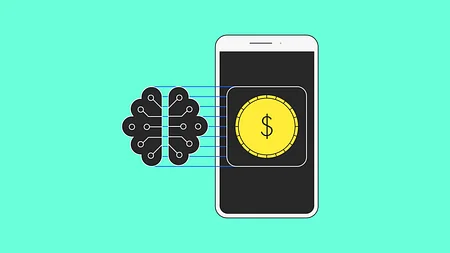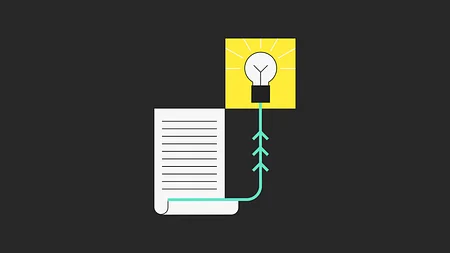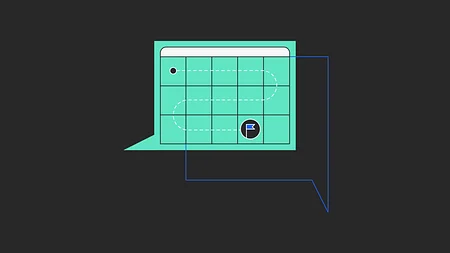Fintech will unlock the true essence of Islamic finance

Delivered straight to your inbox
Get each edition of Unfiltered - our no-BS, uncensored analysis of fintech news and hot topics sent to your inbox each fortnight.
Find out more
If there’s one region that’s been bookmarked by every 2024 predictions list in terms of innovation and investment, it’s the Middle East. And as the region emerges as a fintech hotspot, its unique commitment to Islamic finance is drawing attention.
Governed by Sharia law's ethical principles, Islamic finance emphasises fairness through risk-sharing, particularly in equity partnership with profit and loss sharing (PLS) arrangements for business financing.
Yet, there's a growing concern that we at 11:FS Ventures have heard among its customers: while prevalent models like purchase-based and rent-based contracts comply with Sharia, do they fully capture the essence of Islamic finance?
Well, here comes fintech, wielding the tools to bridge the gap.
With innovations like API technology and open banking, it offers the transparency and trust needed to foster true profit-loss sharing, potentially realigning Islamic finance with its foundational values.
"PLS isn't just a financial mechanism; it's a commitment to fairness and shared responsibility."
The pursuit of fairness through risk sharing
Islamic finance, at its heart, is about fairness and equity, and nothing represents this better than PLS contracts.
Broadly, there are two kinds of PLS contracts which are Mudarabah and Musharakah. In Mudarabah, the financier provides 100% of the capital, and the entrepreneur manages the business. Profits are divided according to pre-agreed ratios, but if there are losses, they are borne solely by the financier. In Musharakah, all parties contribute capital and share in the profits and losses. These approaches are the epitome of Islamic finance's risk-sharing ethos, balancing profit with risk-bearing responsibility.
Why is PLS so crucial in Islamic finance? The answer lies in its goal to cultivate a more equitable financial environment. PLS isn't just a financial mechanism; it's a commitment to fairness and shared responsibility. This model moves away from exploitative practices, fostering a culture where financial transactions contribute constructively to society.
PLS models ensure that financial success is not achieved at the expense of others but is a shared journey. This is the aim of ideal Islamic finance: to create a system where the principles of shared risk, ethical investment, and societal welfare are not just ideals, but lived realities.
For entrepreneurs, PLS financing offers several direct benefits:
- It reduces the financial burden, especially in times of loss or downturns - which improves stability for the business.
- Potentially lower overall costs than traditional loans, as profits are shared only when earned, leading to fairer distributions based on actual business performance.
- It offers broader capital access to entrepreneurs and businesses, focusing on business viability over traditional credit or collateral requirements.
A preference for fixed-return models
Despite the ideals, the reality in Islamic banking often gravitates towards purchase-based (Murabahah) and rent-based (Ijarah) contracts. These models, while Sharia-compliant, lean towards fixed returns for the financier, shifting the risk to the borrower and straying from the preferred risk-sharing framework.
Murabahah, essentially a sales contract, involves the bank purchasing an item and selling it to the customer at a marked-up price, allowing for fixed, predictable returns. Ijarah, similar to leasing, involves renting out an asset owned by the bank to the customer for a fixed rental fee. These models might be particularly suitable for personal financing needs like auto loans or mortgages, where there’s neither profit nor loss to be shared.
So, why do banks favour these contracts, especially for business financing? The root of this preference lies in the challenges of transparency and trust inherent in PLS contracts. PLS models, like Mudarabah and Musharakah, require precise and transparent sharing of profits and losses, a process that demands a high level of trust and thorough, ongoing financial monitoring. Banks often find it challenging to maintain consistent oversight of an entrepreneur's business activities and financial statements. This lack of transparency and the difficulty in accurately measuring profits make PLS contracts riskier and less controllable compared to their fixed-return counterparts.
Consequently, many Islamic banks opt for the relative safety and manageability of the fixed-return contracts.
"Fintech is not just modernising Islamic finance; it’s helping it return to its roots, blending ethical finance with the latest digital advancements.”
Fintech as a game changer
When it comes to fintech being the game changer we think it will be, the key lies in the integration of cutting-edge financial technology with traditional Islamic banking practices.
One of the most significant advancements is the ability to connect business banking with accounting and cash flow management software. This integration allows for an unprecedented level of transparency in monitoring a business’s performance and financial health. Fintech tools can track and analyse real-time data, from sales and expenses to cash flow trends, offering a comprehensive view of a business's performance. This level of detail is crucial for the effective implementation of Mudarabah contracts, where profits and losses need to be accurately assessed and shared.
Moreover, the rise of APIs and open banking has opened doors to a wealth of financial data. Islamic banks, leveraging these technologies, can access detailed and up-to-date financial information from various sources. This not only ensures more accurate profit and loss calculations but also builds a foundation of trust between the bank and its customers. In a Mudharabah arrangement, where trust and transparency are paramount, these fintech solutions are invaluable.
By providing precise, real-time financial insights, fintech enables Islamic banks to mitigate risks associated with PLS contracts. This risk mitigation paves the way for more widespread adoption of Mudarabah contracts, aligning Islamic banking practices more closely with their core values of equitable risk-sharing. In essence, fintech is not just modernising Islamic finance; it’s helping it return to its roots, blending ethical finance with the latest digital advancements.
My Unfiltered opinion
The rise of API technology and open banking in fintech is not just a trend; it's a beacon of hope for Islamic banking.
This is more than mere compliance with Sharia law; it's about truly embodying the spirit of Islamic finance. As fintech reshapes banking, Islamic finance must seize this moment to address customer concerns and embrace these technological innovations to uphold its foundational values.
The potential for PLS contracts to enhance customer trust and loyalty is immense, not just in the Middle East but in regions like Asia (especially Indonesia and Malaysia), where Islamic finance is deeply valued - not only by Muslims but also by a wider customer base with a shared value.
It's time for Islamic finance to blend tradition with technology, demonstrating that finance can be both faithful and fair.




